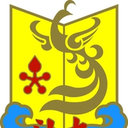DPP4 regulates the inflammatory response in a rat model of febrile seizures.
Palavras-chave
Resumo
Febrile seizures (FS) are the most common seizure disorders in children aged 6 months to 5 years. Children suffering from complex FS have a high risk of developing subsequent temporal lobe epilepsy (TLE). Neuroinflammation is involved in the pathogenesis of FS although the mechanism remains unknown. Our previous study using the Whole Rat Genome Oligo Microarray determined that Dipeptidyl peptidase IV (DPP4) is potentially a related gene in FS rats. In this study, we demonstrated that DPP4 expression was significantly increased at both the protein and mRNA levels after hyperthermia induction. Sitagliptin, a specific enzyme inhibitor of DPP4, remarkably attenuated the severity of seizures in FS rats, and hyperthermia-induced astrocytosis was suppressed after DPP4 inhibition. Furthermore, sitagliptin significantly decreased the levels of the inflammatory cytokines IL-1β, TNF-α, and IL-6 but not IL-10. In addition, sitagliptin prevented NF-κB activation by decreasing phosphorylation of the p65 subunit. Taken together, our findings demonstrate that DPP4 functions as a critical regulator of neuroinflammation in hyperthermia-induced seizures and the DPP4 inhibitor may be a viable option for FS therapeutics.







